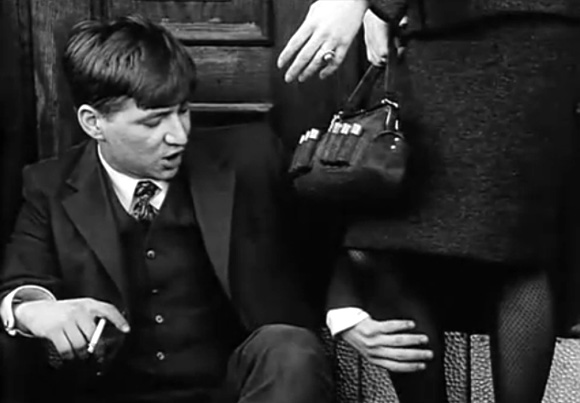Film director Jean-Luc Godard has made one of the sharpest comments on copyright, piracy and film advertising that I have ever seen by releasing a trailer for his upcoming new film, Socialisme, that is actually the entire film in super-fast forward for 1 minute and 7 seconds. This is wit and intelligence like no other filmmaker in the world can muster. Once you see the opening presented to you by the films of Godard it becomes very difficult indeed to get up the energy to go watch highly paid American film stars mug and smile their way through belabored mega-scripts that seek opportunities to display Coke bottles and laundry detergent alongside Aston Martins and designer shoes. You begin to see that the Hollywood product is in reality just a very large catering operation and that movies are made with approximately 10 to 20 times the resources actually required to make any given film. American films, even the ‘independent’ ones, are shot from exactly the same point of view and think that movies are about telling stories. They are conceptually still living in the 19th century. They all adhere to the ‘beginning, middle and end’ framework and they uniformly lead to a ‘climax’ and a ‘resolution.’
Godard, on the other hand, functions in the present, treats film as an actual art form, and always uses a unique point of view that cannot be pinned down or turned into a style. He is death to James Cameron. He murders people like Woody Allen. He makes Scorsese look like the heavy-handed New York buffoon that he is. Godard makes films by persuading people to give him money on the basis of totally fake scripts, then shows up with a note pad and a bunch of confused actors and decides literally on the spot what he might want to be making that day and hopes for the best when it comes to fitting his material inside the structure of a project he might happen to be working on. In short, he works just like an artist is supposed to work. He works from himself. The fact that we have been misled by a century of industrial product aimed at showing us Paul Newman’s teeth is not of any concern to him.
If James Cameron showed up at my door with a contract to be in his next film, I would shove him backwards off my front porch. But I would fly to Europe to stand in the background of a Godard film for free.
